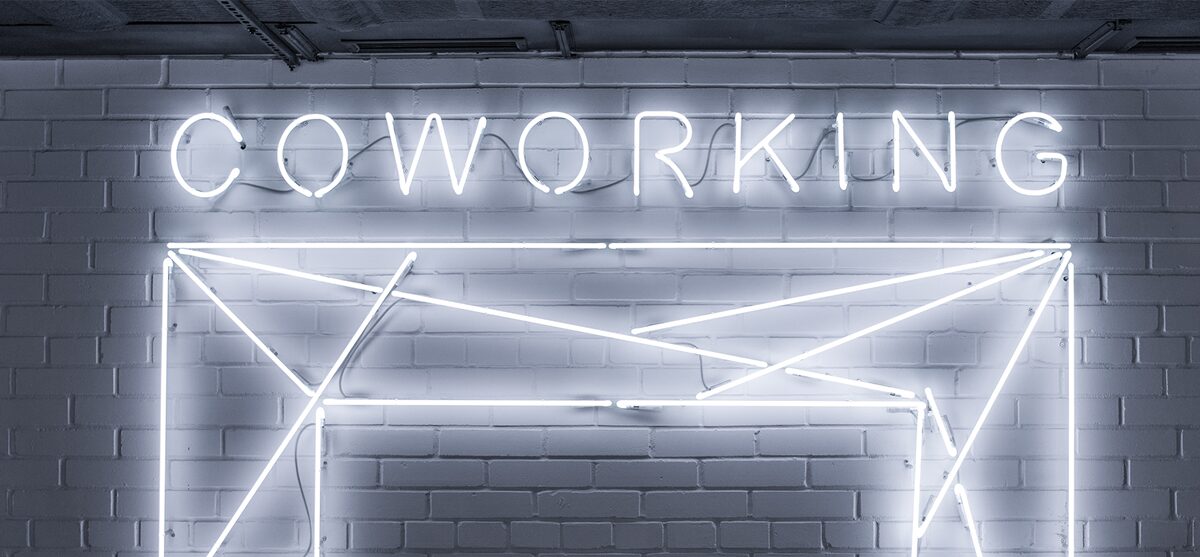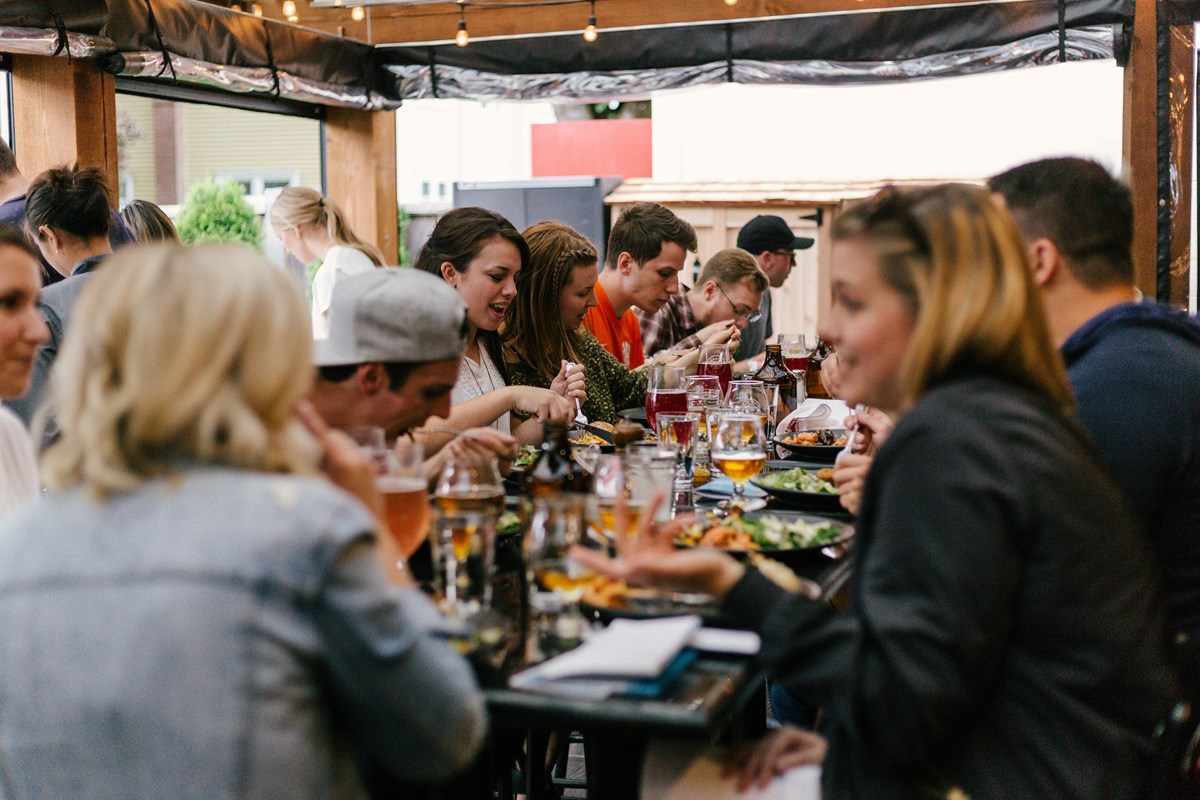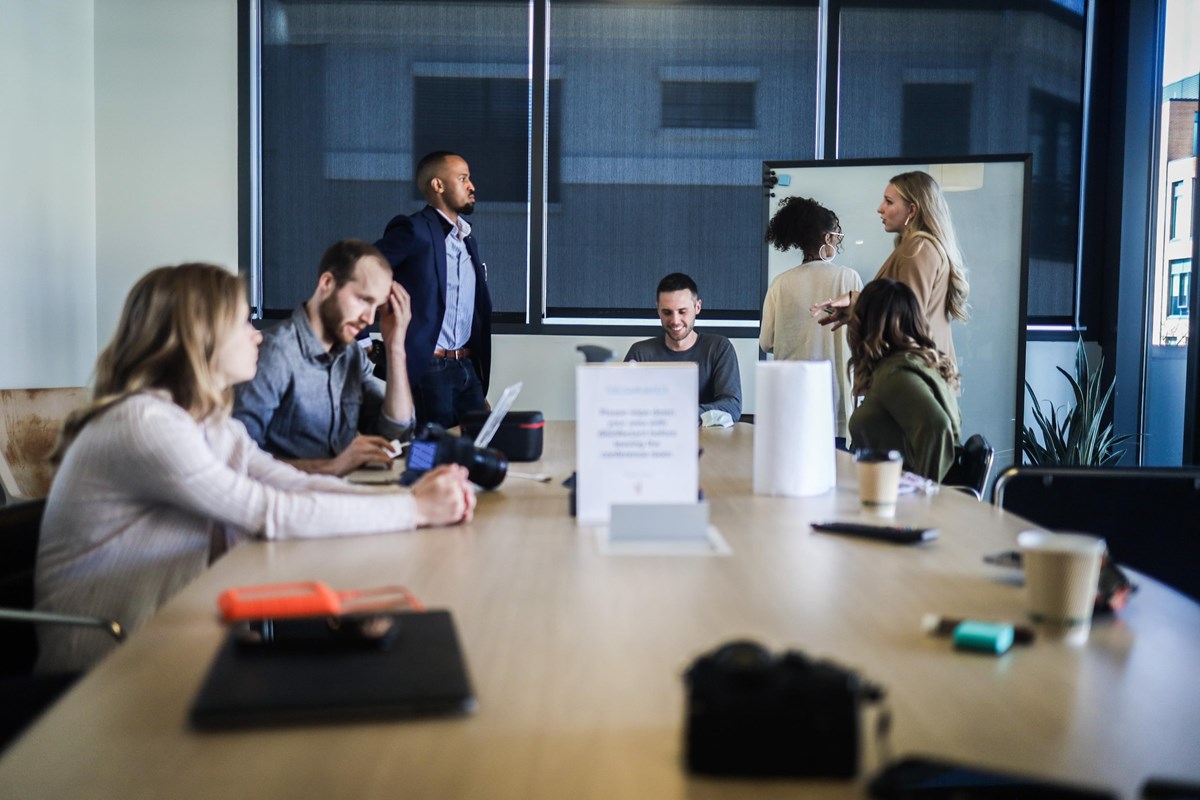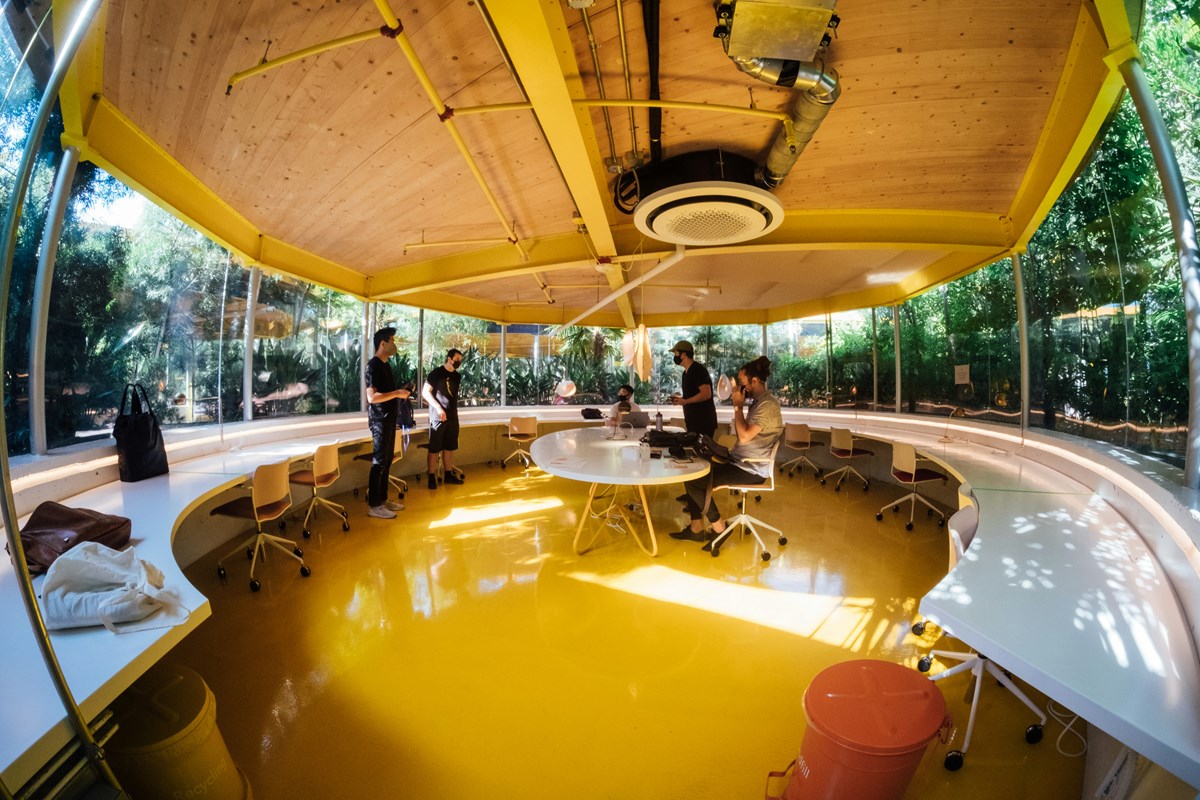- Coworking
- Coworking News
The 7 Best Female-Focused Coworking Spaces (And Why They Matter)
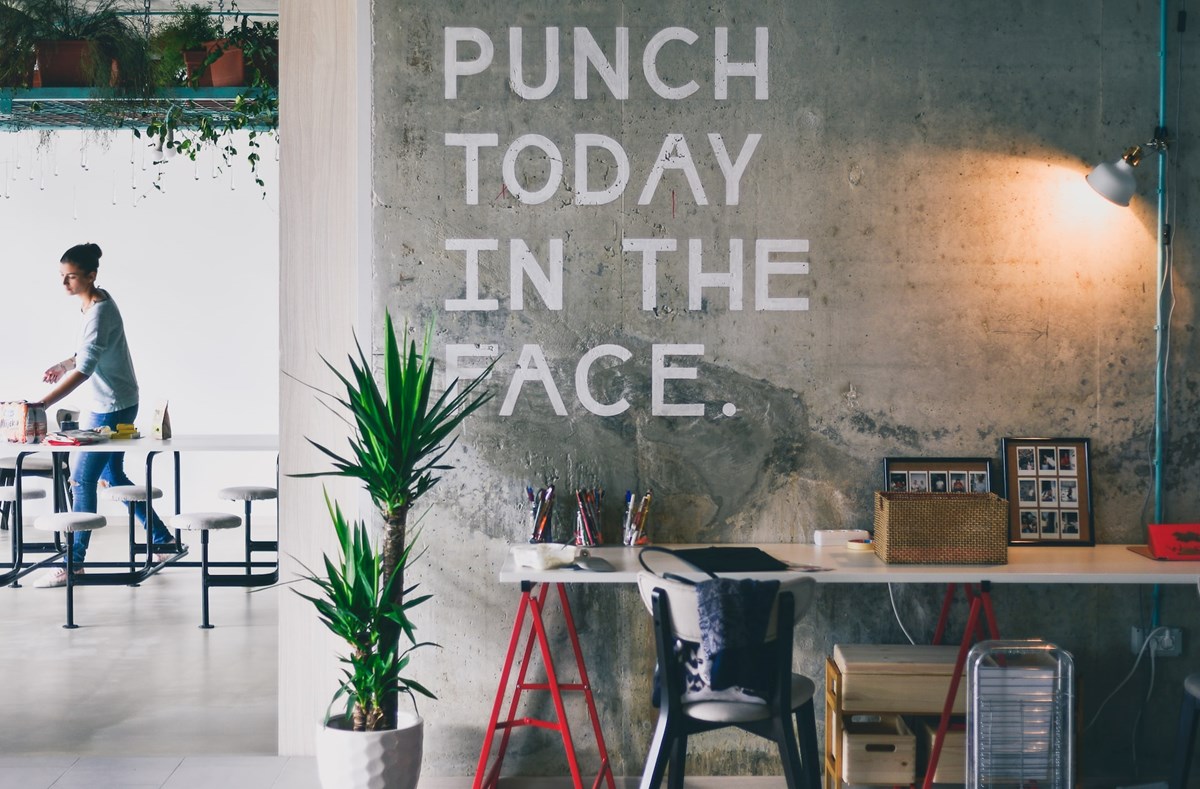
Coworking that centres women
There’s still a long way to go until we achieve gender parity in the workplace.
And the stats back this up. For instance, according to a 2024 Grant Thornton report, women hold 33.5% of senior management roles. Without a more concerted effort, women’s parity in senior management won’t be reached until 2053.
In some areas, such as VC funding, we seem to be going backwards.
PitchBook revealed that in 2024, out of the 3,121 startup first financings, 20.5% had at least one female co-founder. Rewind four years, and it was 26.5%.
What’s more, in Q4 2024, companies with at least one female founder made up 22.7% of total VC deals, down 1.9 percentage points year-over-year and the lowest rate since 2017, according to the Q4 2024 PitchBook-NVCA Venture Monitor.
…And according to the World Economic Forum, at the current rate of progress, it will take 169 years for women to reach economic parity with men.
As a woman who coworks, I first heard about coworking spaces for women in 2017. I was researching ‘niche’ coworking spaces, and wrote an article about Cuckooz Nest—an inclusive coworking space with childcare on-site. (The space has since closed.)
While Cuckooz Nest wasn’t gender-focused, it got me thinking about spaces that are designed to cater to women’s needs, from providing childcare support to mentorship opportunities. Almost a decade on, I thought it’d be good to check back in with the scene.
Are there any new spaces out there?
7 Inspiring women-led coworking brands
Join me on a journey around female-focused workspaces, and hear from Felena Hanson, founder of Hera Hub, to find out what inspired her to open a female-focused space, how she makes it inclusive, and why female-focused coworking spaces still matter today.
1. Hera Hub
With locations across the US, Hera Hub is a female-focused coworking space and business accelerator, and is often cited as a pioneer in the niche.
It’s about supporting women in coworking through education, mentoring, collaboration, as well as providing the space and facilities required to kickstart and scale a project.
Hera Hub has several locations across the US, and has been growing since 2016 through a collaborative licensing model which enables professionals to utilise the Hera Hub brand and system while using their own skills and talents to build a community.
Hera Hub is a Certified Public Benefit Corporation that prioritises inclusivity and runs a number of give-back programmes, including a trade membership programme for people starting out or returning to work. They also offer free or low-cost access to business launch and growth programmes and free access to subject matter experts.
I asked Felena what inspired her to start a female-focused workspace.
Read what she told me after the list ; )
2. The Coven
The Coven is an inclusive coworking community that’s focused on empowering women, transgender and non-binary people. It used to be a space for these groups only, and more recently opened its doors to men. As well as its eight physical locations, it’s also host to a vibrant and growing virtual community.
In 2023, Alex West Steinman, co-founder of The Coven, told BLACK ENTERPRISE that she raised $1.3 million to expand The Coven nationally, and that she had submitted Franchise Disclosure Documents to begin expanding in several states, including Illinois, North Carolina, and California.
Speaking to BLACK ENTERPRISE about creating safe spaces against the backdrop of DEI (diversity, equality and inclusion) dismantling, she explained:
“Now, more than ever, inclusive environments aren’t just nice to have; they’re a necessity. We’ve seen this before. Every time progress is made, there’s a pushback, an effort to revert to systems that exclude, that hoard resources, that tell us there’s no room for everyone at the table. But history has proven something else—when institutions turn their backs, we build our own.”
3. AllBright
Founded in 2018 by Debbie Wosskow OBE and Anna Jones, AllBright describes itself as the world’s largest collective of women in business. It has a physical presence in Old Sessions House, a beautifully restored period building in the Clerkenwell area of London.
There’s even a rooftop terrace with a swimming pool!
The virtual offering is described as a toolkit for networking, upskilling and achieving your career aspirations. More than 80,000 women use the platform to access the online community, where they can join virtual events and workshops, enrol in educational courses and access personalised content that is tailored to interests and ambitions.
AllBright welcomes diverse perspectives. Here’s a quotation from their DEI statement: “Our vision at AllBright is to ensure that all members and staff, regardless of race, background, sexual orientation, gender type or ability feel supported at every stage of their careers.”
4. The Hearth
The Hearth, located in London, is a female-focused coworking space that supports “women on their personal journeys as they come into their own.” Their name is inspired by the “warmest place in the home”, and they describe themselves as kind, safe and accepting.
Like many of the coworking spaces listed, it’s not just about working.
Wellness and balance are big influences and priorities at The Hearth, which also operates as a multidisciplinary alternative therapies clinic for both members and non-members to enjoy. There’s a specialised team of practitioners who provide various holistic healing and beauty treatments, from massages and acupuncture to coaching and nutrition.
Those interested in giving The Hearth a go can attend an event or book a trial half-day, which run from 9am to 1:30pm or 1:30pm to 6pm, subject to availability.
5. One Roof
One Roof isn’t a physical coworking space as such. It’s a movement where entrepreneurs can collaborate online and in person at masterclasses, networking events and local meetups.
As stated on the website, “One Roof is for women, non-binary folks, and those identifying as women. We welcome all those who champion women and the female experience.”
Interestingly, the concept began life as a pop-up coworking location in an Airbnb mansion in St Kilda, Australia. In just under a week, the team welcomed almost 500 women coworkers. That’s when they knew they’d hit on something special.
Due to development plans, One Roof had to move out of its building in 2019, and although the team managed to secure another site, Covid-19 put the project on a hiatus. So, the team quickly pivoted to create a new digital membership and have since hosted the largest virtual female founder pitch night, as well as over 100 bespoke virtual events.
6. The Lola
Founded in and based in Atlanta, The Lola is women-owned and women-led. The focus is on support over competition, where everyone’s achievements are celebrated. The founders are Martine Resnick and Eileen Lee, and you can read more about their stories here.
7. Trehaus
With locations in Singapore and Jakarta, Trehaus is a preschool offering that focuses on building character and future skills, and has its own pedagogy and curriculum, and offers support for working families in the form of coworking amenities.
It’s the brainchild of Elaine Kim, a medical doctor, entrepreneur and mother of three; Elizabeth Wu, an educator, entrepreneur and also mother of three; and Tjin Lee, managing director and founder of the award-winning Mercury Group.
Like Cuckooz Nest did, Treehaus enables members to bring their young ones to work by offering top quality, flexible childcare facilities.
Going back to why these spaces are important for women, here’s why Hera Hub’s founder set it up.
“Hera Hub grew out of my personal need for flexible work, meeting, and event space. I found myself pushed into entrepreneurship after being laid off from a Marketing Director position with a San Diego based high tech company in 2003.
I launched a marketing strategy consulting firm, Perspective Marketing, and found it convenient and cost effective to work from home. Yet, after a couple years I found working from home to be, at times, distracting and isolating.
Shortly after launching my consulting practice, I took on a leadership position with several professional women’s organizations, Women’s Global Network and Ladies Who Launch, San Diego. In this role I found myself constantly challenged to secure cost effective, fitting events and workshop space for monthly meetings.
I was turned on to the concept of coworking in 2010, when I hosted a networking event for an organisation I was leading, at San Diego’s first coworking space, the Hive Haus. I initially thought about how I might use the space for my own marketing strategy business and quickly realized a thirty-something woman was not their target demographic.
They were targeting “tech startups”... thus, primarily, young men. The space was cool - outfitted with a ping-pong table and beer keg - perhaps a little too “cool” for me! The experience did spark an idea…Why wasn’t there a space for someone who wanted a professional and productive environment in a beautiful, inviting setting? Thus the concept for Hera Hub was born (named after the Greek Goddess of women).
It took me approximately 12 months from the time I decided to move forward with the launch of Hera Hub to the point where I completed my business plan, secured financing, and solidified my first location. Since August 2011 we’ve supported over 14,000 entrepreneurs in the launch or growth of their business.”
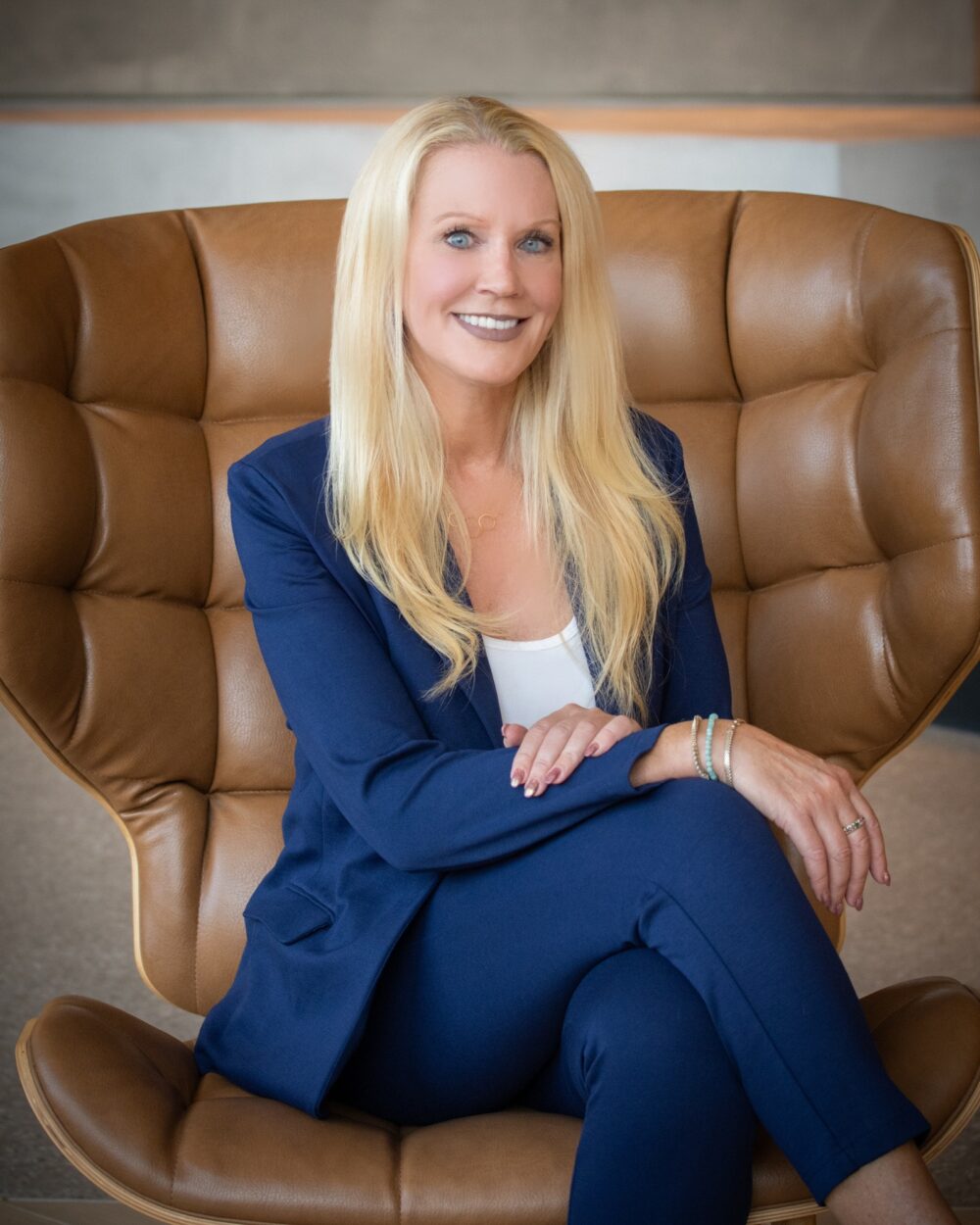
Felena Hanson
Founder of Hera Hub
Why female-focused coworking spaces matter
Female-focused workspaces matter because, as Felena says, “they speed up the human drivers of entrepreneurial traction—trust, learning, and access.” It’s about providing empowering environments where women can feel confident to express themselves and be vulnerable.
“Tailored, women-only programs are more effective at reaching women because participants feel more comfortable showing up and speaking up,” explains Felena. Also, “peer encouragement compounds outcomes. Training or building alongside a trusted friend increases business activity, access to loans, and household income—evidence that “safe peers” change behavior and results.”
Social and structural barriers in mixed-gender settings can lead to gender bias, unequal power dynamics and microaggressions—all of which hinder confidence, expression and opportunities. Female-focused workspaces seek to create space for authentic expression and community support.
Crucially, women-focused coworking spaces and incubator programmes invite members to access resources that might be harder to find in other environments, like business funding and leadership training. These things can encourage innovation and risk taking, both of which are crucial components of leadership and entrepreneurship.
Some argue that female-focused workspaces exclude; however, many invite men who are allies to the gender equality cause. You could say the aim is not to exclude but to rebalance by placing in the centre those who have been marginalised, giving them confidence to re-enter and participate in mixed gender environments.
What makes a space female-focused?
Female-focused workspaces are designed with intention. They are built to meet the social and work lives of women by keeping their realities in mind. While decor can play a role, it’s more about embedding gender equity, safety and empowerment into the infrastructure.
Wellness: Women-focused spaces often feature wellness programmes and design elements, from mindfulness sessions and mental health resources, to holistic health benefits. The goal is to create work-life balance.
“Our distinctly unique touches include soft lighting, tranquil fountains, aromatherapy candles, chillax music—but also the Feng-Shui principles when we design a space,” says Felena. “The spaces are beautiful, comfortable, and homey, but not overtly feminine. Our color palette is brown and blue… very grounding colours.”
Security: Security is important in all coworking spaces. Robust access control measures help ensure only members and people granted access can enter the building (and specific areas within the building) while well-lit spaces can contribute to a sense of security.
Childcare: Like Trehaus and Cuckooz Nest, childcare facilities help address gender imbalance by enabling mothers to remain engaged in work without having to sacrifice too much time with their children. It also benefits men, enabling them to fit childcare responsibilities around their work-life.
Privacy: Private meeting rooms, breastfeeding/ lactation areas and quiet zones all contribute towards a more inclusive, comfortable environment where women feel able to focus and be themselves in a setting that caters to their needs.
Programming: Female-focused spaces run workshops and talks by female leaders, which can inspire and nurture skills and confidence in areas such as leadership and negotiation.
Funding circles: In-house investment networking and pitch sessions can help to readdress the inequality in venture capital and business funding.
Are women-only spaces the answer?
Although many see women-focused workspaces as empowering and necessary when it comes to levelling the playing field, they occasionally face challenges and criticism.
While new ones have entered the scene, lots of female-focused coworking spaces have closed down in recent years, including The Wing, a US based coworking operator founded in New York by Audrey Gelman, former press secretary to Hillary Clinton.
In 2024, the BBC penned an article titled ‘Do women-only coworking spaces have a future?’
It reads:
“But then it [The Wing] suffered a spectacular fall during the pandemic. There was a staff revolt, with allegations of mistreatment and racism. Its pricing model led to accusations of social exclusivity. It was also hit by legal challenges for sexual discrimination over its core women-only membership policy. The self-proclaimed “female utopia” abruptly closed all of its spaces in the summer of 2022, including a branch in London.”
After facing an investigation in 2017 over gender discrimination, as well as a lawsuit by a man who was refused admission onto the Washington DC branch, The Wing changed its membership to allow anyone to join, as long as they aligned with the values of gender equality. Other female-focused workspaces followed, including The Coven.
Ultimately, female-focused workspaces can be seen as part of a wider ecosystem for gender equality—a tool that when matched with wider policy change and advocacy, can help women get a seat at the table.
Why more operators are building for women, and how to start
There is a demand for women-focused workspaces, and operators are stepping up. If you’re thinking of building a feminist workspace or a space for female empowerment, and don’t know where to start, here are some tried and tested springboards. Clue: community and flexibility are still key.
1. Define your purpose and audience
Begin with a clear vision: is your space going to be a female-focused, gender-inclusive environment, or is it a women-only space? Identity and define your audience clearly, and anticipate specific challenges you may need to address along the way.
2. Design for real needs
Every aspect of your space should cater to your audience’s needs and lived experiences. Childcare options, privacy rooms, robust security features and (of course), flexible membership plans are a must. Let safety, comfort, accessibility and flexibility lead.
3. Build meaningful programming
As we know, coworking is all about community. For a female-focused space, curate with empowerment in mind. Mentorship circles and investment opportunities/ seminars will be hugely valuable. Boost your reach by partnering with local women’s networks.
4. Develop a strong brand and culture
Your brand should reflect inclusivity, and avoid stereotyping. Think about how you’ll use language and visuals to reflect the diversity and ambitions of your space. Remember to value collaboration over competition, and ensure everyone supports the space’s values.
5. Test, measure and evolve
Get feedback and act on it. Your coworking CRM will track member retention metrics and participation in events. Your workspace is a work-in-progress, which means you might need to adapt your offering, whether it’s making hours more flexible or testing new events.
In summary
Like all niche coworking spaces, as well as coworking more generally, female-focused workspaces are always evolving to meet the needs of their audiences. It’ll be interesting to check back in a few years time to see how the spaces on this list are faring!
In the meantime, here are a handful of Nexudus tools that can support operators who are thinking about creating a space for female empowerment and inclusivity.
Member Directory
Enables members to create profiles, list their skills, and connect with others based on shared interests or professional expertise.
Tailored access levels
Grants different access permissions based on membership types, ensuring that only authorised individuals can access certain areas.
Visitor management
Monitors and manages visitor access, ensuring that external guests are properly vetted and logged.
Usage patterns
Monitors desk and meeting room occupancy to identify peak times and optimise space allocation.
Member retention
Utilises churn prediction tools to proactively address member concerns and enhance retention strategies.
Want to know more about
how Nexudus could help your business?
We’re here to answer any questions you have.
Latest articles
-

- Coworking
- Coworking Resources
Why Coworking Members Leave (Did You Miss These Signals ?)
Kate Tattersfield on February 11, 2026 -
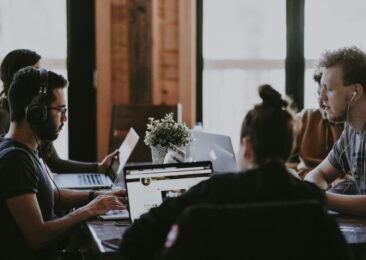
- Community
- Coworking
- Coworking Resources
What “Community” Means in Coworking (and Why Most Spaces Get It Wrong)
Kate Tattersfield on February 6, 2026
